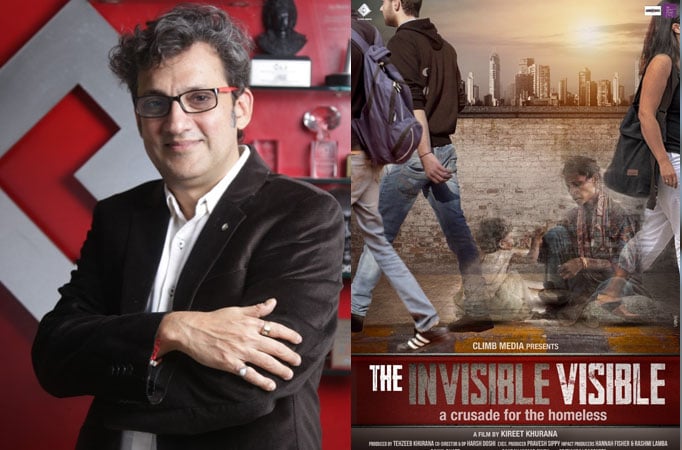
MUMBAI: The documentary also highlights the dehumanization of over 70 million homeless, Indian citizens
On October 10, observed globally as World Homeless Day, award-winning director Kireet Khurana announced, ’The Invisible Visible,’ a documentary highlighting the plight of over 70 million destitute Indian citizens.
The film that will release in mid-2022, according to Kireet is a crusade against the draconian Bombay Beggary Prevention Act 1959 that has further criminalized the homeless and made them vulnerable to incarceration, torture, and dehumanization. The film shot across India also portrays how the disenfranchised have been literally left out in the cold to die. Or crammed in shelters to be exploited as in the Muzaffarpur case, where hundreds of girls between 6 and 15 were raped, tortured, and killed.
Says Kireet, The Bombay Prevention of Begging Act of 1959 is primarily an anti-poor law and yet has been adopted by over 22 states. It basically criminalizes the act of begging, without addressing basic issues like poverty and homelessness. It also legitimizes the arrest of any person for up to three years without a warrant and gives limitless power to the police. If a person is convicted for the second time, he/she could be detained for a period of over ten years! Can you imagine how much human potential could be salvaged if we could instead rehabilitate these underserved and dehumanized millions?”
The film he says is an attempt to sensitize the audience to the erasure of India’s poor and to the indignities they suffer every day right before our eyes. The film also is a cry for more empathy-driven policies that could protect street children from trafficking and prevent people from falling into a morass of exploitation and violence. If all citizens had access to food, shelter, and healthcare, so many societal inequities could be healed, he says.
The film is narrated through the perspective of the social organization 'Koshish' which was founded by a concerned citizen Tarique in 2003. Kireet says, “The film not only seeks state intervention but also that civil society acknowledges the pain of fellow humans. Tarique was just another 17- year- old student when he went to a homeless shelter to distribute food and was so devastated by what he saw, that the course of his life changed. Koshish was born a few years later and since then, it has transformed thousands of lives. We can all change at least one life for the better.”
He also hopes that the film will inspire grassroots activists, intellectuals, stakeholders, top lawyers, NGOs, and policymakers to synergize and work towards repealing archaic, anti-poor laws.
As Kireet says, “This is not just a film but an attempt to raise the level of human conscience and build a momentum against the Bombay Beggary Prevention Act, (1959). I hope the film will also serve as a catalyst for states to set up shelters for the homeless in each district and have independent and credible agencies to audit them regularly."

















Add new comment